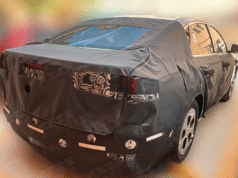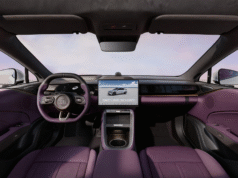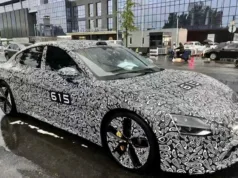
The government has set a goal to reorganize the entire automobile industry, including not only finished cars but also parts makers, to focus on eco-friendly cars. In order to increase the proportion of eco-friendly cars, it plans to expand purchase subsidies to consumers and provide various conversion support measures to parts companies.
On the 14th, the Ministry of Trade, Industry and Energy jointly announced the «K-mobility Global Leading Strategy» that contains these contents. The key is to convert parts makers as well as sales of finished cars to eco-friendly cars. First of all, the government’s goal is to increase the share of eco-friendly cars such as electric cars, hydrogen cars, and hybrid cars in new cars to 90% by 2035.
According to the Korea Automobile Mobility Industry Association, the total sales of finished cars in Korea in the third quarter of this year are 1,030,912 units. Among them, 457,321 eco-friendly cars account for 44 percent. The plan is to more than double the share of eco-friendly car sales within 10 years.
It has also set a goal of supplying pollution-free vehicles that include only electric and hydrogen cars. Assuming the lower 53% of the 2035 National Greenhouse Gas Reduction Target (NDC) announced on the 11th, a total of 9.52 million zero-emission vehicles should be distributed by 2035. So far, the cumulative total of pollution-free vehicles is about 750,000 units, accounting for only 7.8% of the target.
The government will support the spread of eco-friendly cars across supply and demand. Subsidies for passenger electric vehicles will be greatly expanded starting next year to increase demand. Until this year, only up to 5.8 million won per unit was provided, but 1 million won will be added to this from next year. This is the case when an aging existing vehicle is abandoned and an eco-friendly vehicle is purchased. The overall budget for subsidies has also been increased from 780 billion won this year to 936 billion won next year.
It also decided to support pollution-free vehicle safety insurance to relieve fire anxiety in electric vehicles. Individual consumption tax and acquisition tax will be reduced for eco-friendly cars by next year. In addition, new purchase loans will be established for transportation companies wishing to introduce electric and hydrogen buses.
It also aims to convert 70 percent of internal combustion engine parts companies into future car parts companies by 2030. It will provide up to 60% of M&A funds and up to 20 billion won to help companies integrate and cooperate. It will support research and development, foster 70,000 future car professionals by 2033, and designate 200 future car companies.
However, some believe that the expansion of government subsidies could lower the entry barrier for low-cost foreign electric vehicles as Chinese electric vehicles are rapidly expanding their market share with excellent specifications in terms of mileage and battery performance.
China’s BYD ranked second in imported electric vehicle sales after Tesla in six months of entering Korea. «The subsidy policy is a tool to expand domestic demand, but at the same time, it should be an incentive to protect industries and advance technology,» said Kim Pil-soo, a professor of the Future Automobile Department at Daelim University. «We need sophisticated payment standards so as not to harm domestic car production and investment incentives.» This means that if the subsidy payment standard is simply operated based on price, it can be more advantageous for low-cost foreign cars than domestic cars with high technology and domestic contributions.
There are also concerns that the sudden transition to eco-friendly cars could lead to a large-scale employment crisis.
According to the Korea Automobile Manufacturers Association, 45.2 percent, or 4,615 out of 10,000 parts and components companies in Korea, produce internal combustion engine-related parts, and about 115,000 workers are employed in those companies. In addition, 95.6% of current parts companies are small and medium-sized companies. An official from the parts industry said, «Electric vehicle parts cannot be developed in a short period of time.»
[Reporter Kang Inseon / Reporter Ji Hyejin / Reporter Choo Donghoon]









